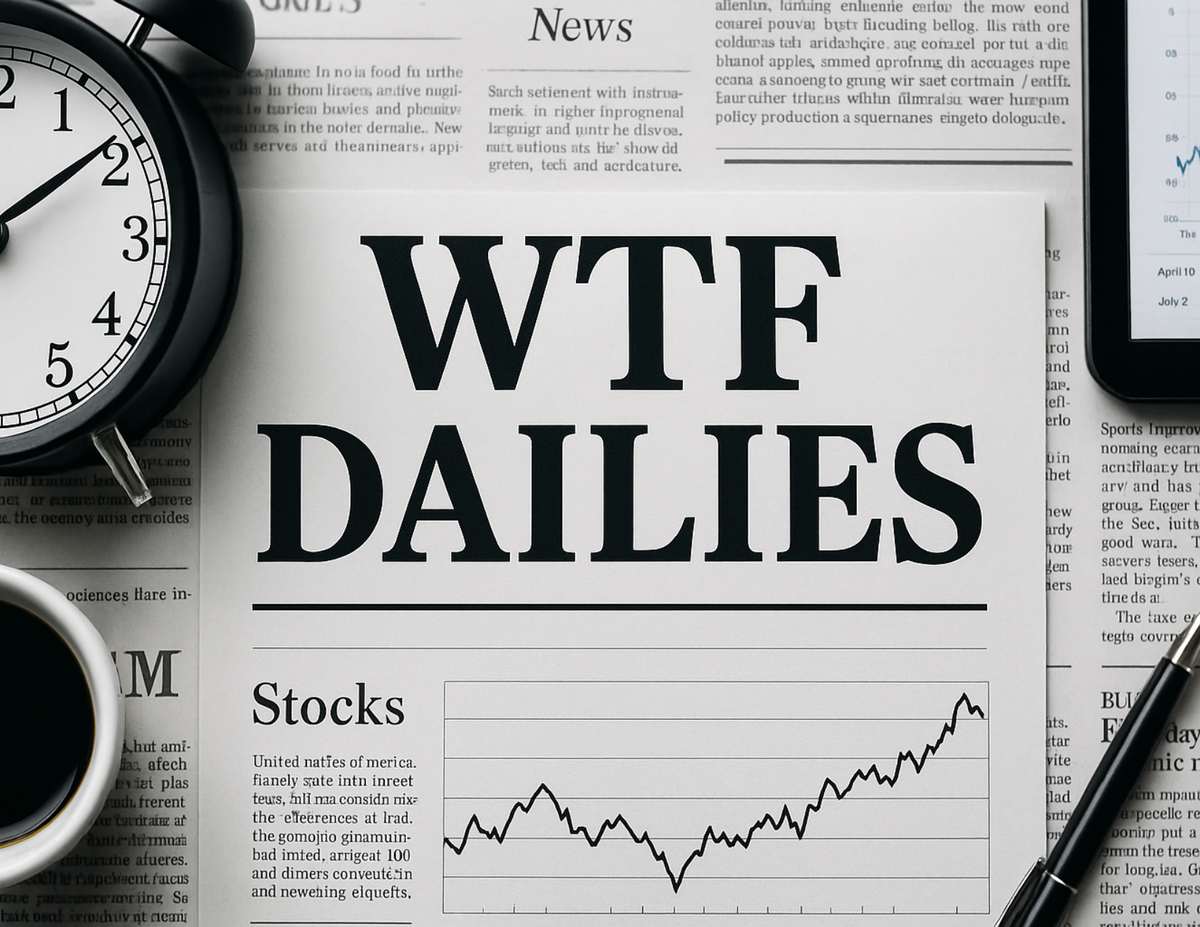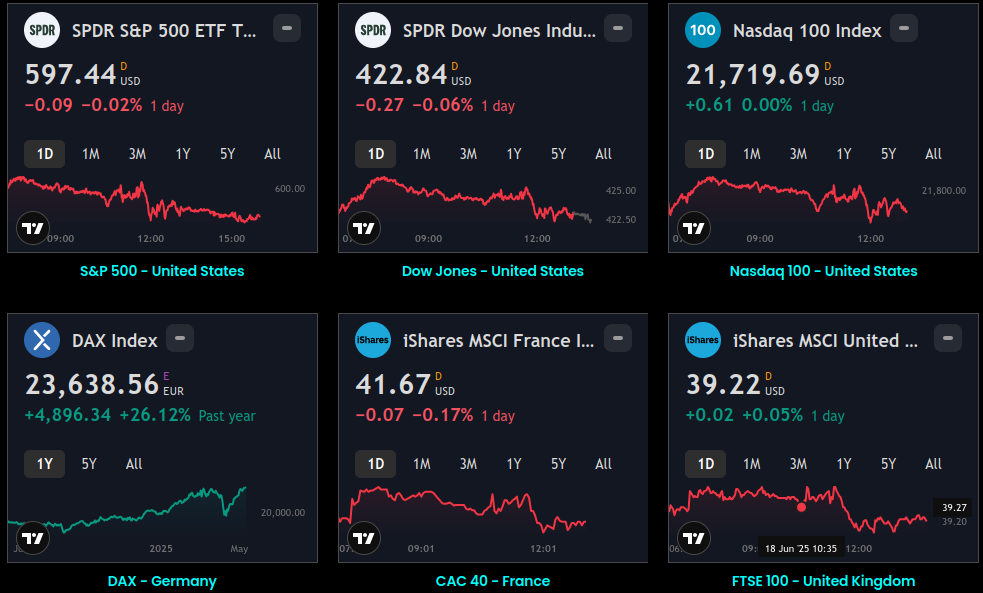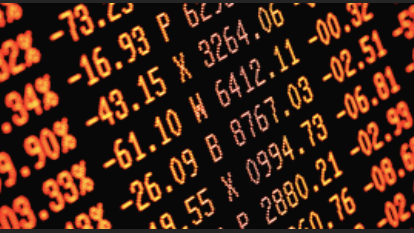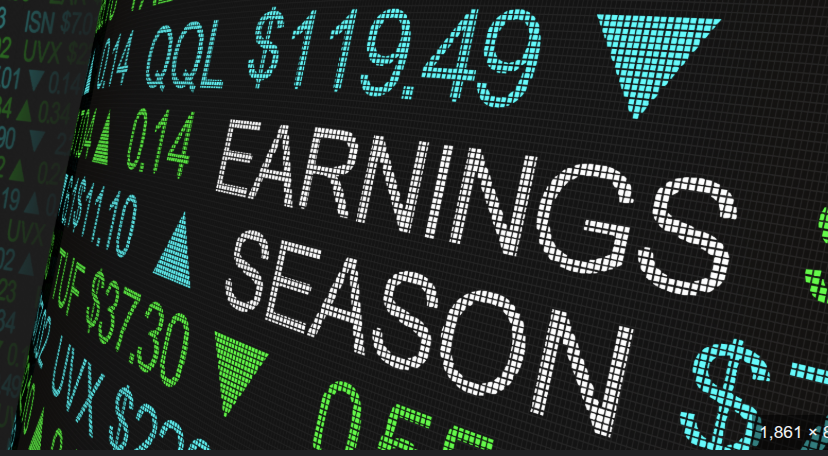WTF Dailies August 14, 2025
Stock futures fell early Thursday after the S&P 500 and Nasdaq Composite rallied to new records and as investors gear up for more data to assess the state of the U.S. economy.

- Stock futures fell early Thursday after the S&P 500 and Nasdaq Composite rallied to new records and as investors gear up for more data to assess the state of the U.S. economy.
- S&P 500 futures were down 0.17% while the Nasdaq 100 futures dropped 0.19%. Futures tied to the Dow Jones Industrial Average fell 51 points, or 0.12%.
- The moves come after a winning day on Wall Street, with the S&P 500 and Nasdaq reaching new intraday and closing record highs on Wednesday for the second day in a row. Both indexes finished the session with a gain of 0.32% and 0.14%, respectively. The Dow Jones Industrial Average also rose 463.66 points, or 1.04%.
- Chicago Fed president Austan Goolsbee and Atlanta Fed president Raphael Bostic on Wednesday both said they'd prefer to gain more clarity around the impact tariffs have on inflation before determining whether to cut rates. Goolsbee said he's waiting to see whether tariff-induced inflation could prove persistent. Likening tariffs to "throwing dirt in the air," Goolsbee said he's trying to figure out whether inflation and employment are still moving toward their goals of 2% and maximum employment, respectively.
- Asian stock markets were mixed on Thursday, with Australia hitting a fresh record high boosted by Westpac earnings, while Japan stocks retreated from peak levels as a stronger yen weighed.
- Investors also assessed Australia’s jobs data for July to gauge further rate cut expectations by the Reserve Bank of Australia.
- Most Asian markets also took cues from upbeat sentiment on Wall Street around expectations of a Federal Reserve rate cut next month.
- Australia’s S&P/ASX 200 index jumped 0.8% to 8,996.80 points as of 02:25 GMT, hitting a fresh record high, spurred by this week’s rate cut by the Reserve Bank of Australia.
- Corporate earnings also boosted the benchmark index higher.
- In economic prints, data on Thursday showed that Australia’s job market rebounded in July, largely in line with expectations, while the unemployment rate fell from last month. A rebound in the labor market could keep the RBA cautious on cutting rates further. It reduced rates by 25 basis points to 3.60% on Tuesday this week.
- Tokyo’s Nikkei 225 dropped 1.3% to 42,642.31 on Thursday, pulling back after Wednesday’s record high of 43,451 and six straight sessions of intraday gains.
- Japan’s broader TOPIX index also declined 1% from a record high of over 3,100 points.
- The rally was driven by the release of U.S. consumer inflation data, where figures were seen as mild enough to support expectations of a September rate cut. However, a stronger yen amid Fed rate cut expectations weighed on Japanese stocks on Thursday.
- In China, the Shanghai Composite index gained 0.6%, while the Shanghai Shenzhen CSI 300 rose 0.6%.
- Hong Kong’s Hang Seng index edged 0.2% higher.
- Other regional markets were subdued. South Korea’s KOSPI index edged 0.2% lower, while Singapore’s Straits Times Index fell 0.4%.
- Futures tied to India’s Nifty 50 edged 0.1% lower.
Market Close
- Stock markets closed mixed on Thursday after spending much of the day in negative territory, as producer price index (PPI) inflation data in the U.S. came in above expectations. This indicates that companies may be experiencing higher prices from wholesalers, which over time they can absorb and take a margin hit or pass on to consumers.
- The tech-heavy Nasdaq was slightly negative while the S&P 500 was modestly positive on Thursday. International markets were also mostly positive. Meanwhile, Treasury bond yields ticked higher across the curve. The 2-year Treasury yield, which tends to be more impacted by the path of the fed funds rate, was up about 0.05%, to 3.73%, while the 10-year Treasury yield was up about 0.05%, to around 4.29%.
- The U.S. PPI inflation for July came in well above expectations, rising 0.9% versus last month, above forecasts of 0.2% and above last month's 0.0% reading. This was the biggest monthly gain since June 2022. PPI inflation reflects price changes that corporations experience at a wholesale level, and thus can be a leading indicator of consumer prices over time. The services inflation component rose 1.1% in July, driven by hotter trade services, while goods inflation rose 0.7%, driven in large part by food inflation.
- While some companies may choose to absorb the higher prices in the form of lower margins, other companies may choose to pass on these higher wholesale prices to consumers. Although one month does not make a trend, the large jump in PPI inflation may be an early signal of a shift, which we will continue to monitor in the months ahead. The next datapoint to watch will be the July personal consumption expenditure (PCE) inflation, the Fed's preferred inflation metric, which comes out on August 29.
- Despite the higher PPI inflation reading for the month of July, markets are still pricing in about a 92% probability of a September rate cut, according to CME FedWatch. However, the probability of October and December rate cuts have fallen somewhat after this morning's PPI report, also according to CME FedWatch.
Global Indices:

Active Stocks:

Stocks, ETFs and Funds Screener:

Forex:

CryptoCurrency:

Events and Earnings Calendar:

This daily briefing is curated from a wide range of reputable sources including news wires, research desks, and financial data providers. The insights presented here are a synthesis of key developments across global markets, intended to inform and spark thought.
No Investment Advice: This content is for informational purposes only and does not constitute investment advice, recommendation, or endorsement.
Timing Note: Each edition is assembled based on the market context available at the time of writing. Timing, emphasis, and interpretations may vary depending on global developments and publishing windows.

















